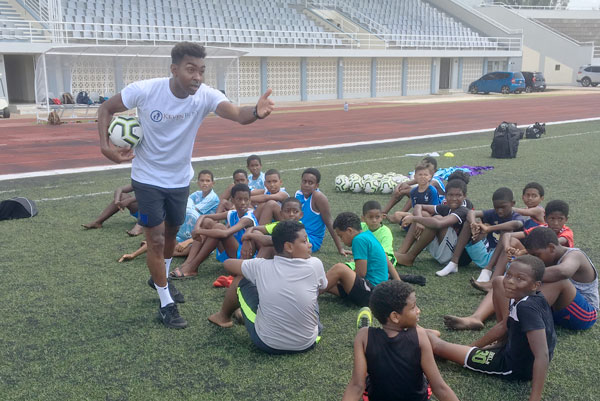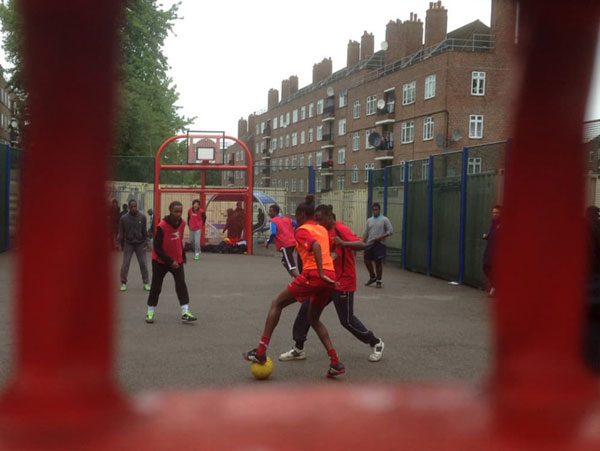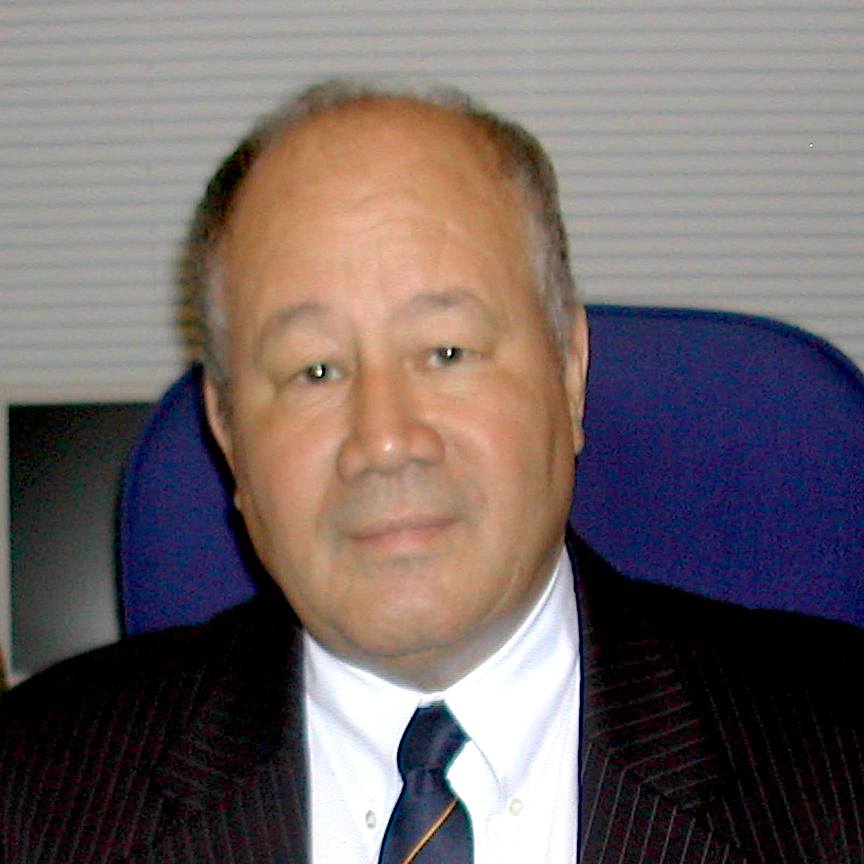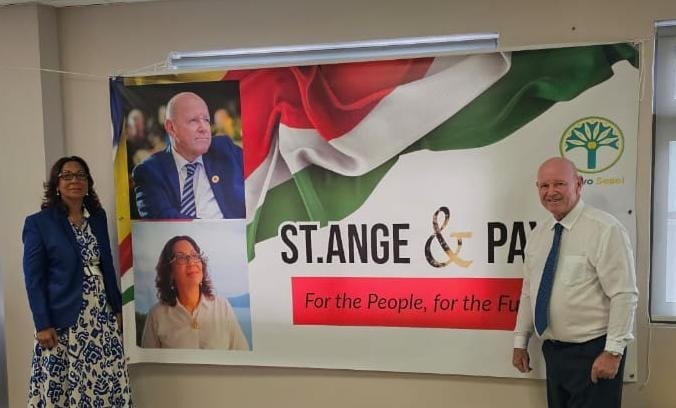England youth coach Kevin Betsy explains why he loves his job – I enjoy helping people become better

Seychelles-born Kevin Betsy is now manager of the England Under 18 football team. The only Seychellois to play in the English Premier league, Kevin got his big break in football when Fulham manager and former England star Kevin Keegan plucked him from non-League Woking for £150,000 in 1998. Kevin went on to enjoy a strong career that took in 12 clubs including Bristol City, Barnsley and Wycombe. He also played for the Seychelles national team in the 2011 Island games where he scored in the final against Mauritius and helped the team take the coveted gold medal. His Kevin Betsy Foundation, which was created to develop and inspire the younger generation of Seychelles, aims to use football to help children with their education, health and well-being. Seychelles Life asked Kevin how things were going for him in 2021…
You clearly enjoy your work as England Under 18s manager, having started with the U15s. What part of the job gives you the greatest satisfaction?
I enjoy helping people become better than they were yesterday, both playing football and also in life. I’m fortunate enough to help some outstanding young people achieve a dream of playing for England at youth level.
You have spent several years in the England camp, would you like the top job coaching the England senior team?
The England senior team is a job that is the pinnacle of management and coaching in England and also a much-loved job in world football. We have a fantastic manager and I'm a long way off achieving such a role. I’m just trying to be the best I can be everyday. We have an outstanding manager in Gareth Southgate and I’m learning all the time from him on a day-to-day basis.
You believe it important that young players are shielded from having too much expected of them. However, what about the expectations placed on you as manager? How do you handle that pressure?
In football, as in other industries, handling pressure is very much part and parcel of a management role. As a player, I was always under pressure to perform every day in training and games. Supporters and media also add to the pressure so I have been used to dealing with such situations from a young age and become accustomed to it. When I played for Seychelles and we won the Indian Ocean Games I felt the pressure of the country’s weight on my shoulders as did every other player and member of staff within the SFA to bring the gold medal home, something that had never been done before. We had a fantastic squad with a super manager in Ralph Jean Louis and all his staff. I was the only professional player in the squad and playing in Europe so perhaps expectations on myself were high for obvious reasons. I felt I had to deliver and thankfully the team did and I played a small part in the success. How I did that was to ensure I took care of what I could control: my behaviour with my teammates and coaching staff, my preparation, nutrition and sleep. Everything counts, so your preparation is a mechanism to alleviate pressure.
Now in my management role it’s important that I have a clarity in my work and I ensure that the staff who work with me are also given opportunities to show their skills and expertise.
This comes under the topics of delegation, process and switch off.
Delegation – Understanding myself and areas of expertise is key. It ensures that I allow each and every person to be the best they can be and so provide guidance to support and fundamentally help the players we work with. Ultimately, this helps reduce my work load and allows me to focus on the key areas of importance
Process – Getting things in place to reduce pressure is very important. Planning, organisation and the way you review and reflect on your work to improve helps take pressure away and prevent things getting on top of you. One thing that has helped me greatly is planning for the “what ifs”, so when you counter those moments of increased pressure, when in a game or off the field, then you have already thought of that situation and come up with a plan. You have to be adaptable in the role I have.
Time Management – Fundamental to helping deal with pressure is the ability to switch off . Hard work is something that I was brought up with, but over the years I have improved in this area. I work smarter and don't feel guilty at taking a break at the right moment. Doing things that make me smile and take my mind away from everyday stress can take my thoughts away from work. Keeping fit, reading, watching movies, spending time with family all help greatly in making me relax. During the Indian Ocean Games, I would go and meet friends, go to the beach, take some long drives, watch the sunset. We did not get many days off, but in the days we did you have to switch off and relax, otherwise you can over-think things and burn out and not be at your freshest for players and staff.
You say that you were a late developer in the game. With hindsight, was that a help or a hindrance in your professional career?
It was a help. I had to struggle as the footballers I played against were strong and quicker than me. I had to think quicker and my technical quality had to be better than theirs for me to compete. When my body grew and it became a level playing field then I had a wider base of qualities. This added to the resilience I had to build in myself as so many teams said I wasn’t good enough and many games I spent on the bench watching.
[His father Lewis, said Kevin, though now 6ft 2in, was small for his age and missed out on several opportunities. When he was eight he was turned down for several clubs, but persevered and went on to play for his county scoring 90 goals in one season alone.]
What did you learn from your work in America? Was it a good experience?
Yes, it was amazing. The people in America were so friendly. I lived with five different families who took me in their home like their own. They loved football and their attitude to improve was unbelievable. Soccer, as they call it, was booming as they were looking to improve their players with English coaches. The girls and women were some of the best I worked with while I was out there technically – and dedication was of a high level. It helped me understand the way of life of a vast country and how to build relationships with people from different areas ands backgrounds. In the end, football has a universal language which is easy to translate. But actually living there helped me have balance as Americans are so family, and community-orientated and the way of life is relaxed. They ensure they give time to have fun, it’s not always work.
How much do you think the game has changed since your father, Lewis, was an international player for Seychelles in the 1970s?
I can’t really speak for what people in the 1970s went through. I can only have respect and praise from the stories I have heard and what I have seen with my own eyes. The level of that generation was no doubt extremely high, they played against the top teams in Africa and did very well and my father and many other players were selected to train with top clubs in England. This doesn’t happen if you are just average.
When I was young I used to watch the many Seychellois exiles play in England. They had been top players in the Seychelles league and were older and not in their prime, but you could see their quality. I would be amazed by the element of skill and tactical understanding they showed. These guys were serious competitors and if they lost – which was rare – the arguments were very strong. These are signs of elite players in their era.
There are some extremely talented players in Seychelles today and I saw it with kids as young as six years upwards during my last visit with work for the [Kevin Betsy] Foundation. The facilities and infrastructure are far better these days on the islands.
When I go I only see snapshots of what goes on, so I can’t really give a good assessment of how it has changed. All I know is that there is talent across the country in many industries in Seychelles as well as in coaching and playing football.
The question is can the talent get the right guidance and development and opportunities for it to grow? This is maybe a question for people who have more knowledge of the islands to take up.
In an interview you did for the UK national newspaper The Daily Mail (see link below), “cage football culture” was mentioned. What is that?
Cage football is a term to describe street football in London where the pitch area, usually concrete surface, is surrounded by fencing. This gives the cage term. The ball is always in play and the area is tight. This is a good thing as many of England’s top young players come from these environments and it improves their technical skills, allows for creativity, flair and quicker decision-making. The area is small and the ages of the players can vary greatly: a nine-year-old can be playing with a 16-year-old; the numbers playing can be eight versus five, or three versus six. Better players will always have less players versus the weaker players.


Kevin’s interview with the Daily Mail can be read through this link
https://www.dailymail.co.uk/sport/football/article-9185769/England-18s-boss-Kevin-Betsy-using-experience-help-round-England-stars.html













